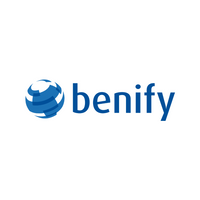Lack of awareness devalues reward: Here’s how to ensure staff know the full value of their benefits

In addition to the desire to do more meaningful work and to be engaged, many people are discovering that it’s more important to have a job which supports their lifestyle needs rather than simply collect a bigger salary.
Flexibility - being able to leave the office early to pick up the kids or the ability to work from home when needed - has become increasingly important, as have employee benefits and having an understanding of one’s own finances (also known as financial wellness).
Knowing Your True Worth
In 2018, Benify surveyed over 20,000 employees and HR leaders across a variety of industries for its Employee Happiness Index2. The anonymous survey collected insights across a number of areas including benefits, rewards, personal finances, and employee engagement. The findings revealed a clear correlation between benefits satisfaction and workplace engagement.
The research also showed that employees at organisations with a benefits strategy – that is, companies who know their employees’ concerns and making sure that any benefits offering is aligned with the company’s broader business goals - are:
• 20 per cent more satisfied with their benefits
• 19 per cent more convinced their benefits are better than other workplaces
• 14 per cent closer to their employer’s brand
The survey also revealed that a staggering 80 per cent of employees underestimated their total compensation. Without the knowledge of their total compensation, this means that employees are missing out on a large portion of their compensation. As one Forbes article shares3, benefits can play a significant role in the larger financial picture and explains how, for example, Google’s free breakfast, lunch, and dinner can add up to over $10k on top of an employee’s salary.
Show Me the Money
So, how exactly do employers help employees understand their full investment? By providing employees with a clear visualisation in the form of a Total Reward Statement.
An employee’s total reward statement can give the individual a monetary breakdown of their salary, pension, insurances, and other benefits paid to them as part of their compensation, and can then presented as a graph providing a clear overview of the components adding up to their total compensation.
Any changes to an employee’s compensation, such as enrolment into new benefits, are updated in real-time.
An employee’s Total Reward Statement is, of course, personalised - based on the individual’s own employment details – and personalisation is key to engagement.
Making Employees Aware
A company’s greatest benefits offering means very little, however, if employees are unaware of them. That is why effective communication essential, especially when you have a workforce based in multiple locations and countries, or when you have blue-collar employees who are not stationed in front of a computer. This is where targeted communication comes in.
With targeted communication, the content of a message is adapted to a specific audience and that the message is only sent to the individual or group(s) concerned. For example, with the use of filters, emails, push notifications, or messages can be sent to all people with access to a particular employee benefit, all people in a specific age category, or all people who work within a particular region. Today, we see baby boomers, Generation X, millennials, and Generation Z all working together, each with their own communication preferences. Again, personalisation is key to engagement, and targeted communication allows organisations to engage employees personally and more effectively.
So, how does your organisation help employees understand their true value?
This article is provided by Benify.
Reference
- 9 Out of 10 People Are Willing to Earn Less Money to Do More-Meaningful Work, Harvard Business Review, November 6 2018, Shawn AchorAndrew ReeceGabriella Rosen KellermanAlexi Robichaux
- Employee Happiness Index 2018,
- Salary Is Important, But Here Are 5 Other Things You Shouldn't Ignore As A Job Seeker, Forbes, August 17 2016,
In partnership with Benify
Benify offers the market's leading global benefits and total reward platform.







